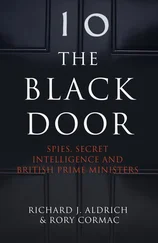They were not disappointed. By 23 May they had been encouraged to unearth and set up their equipment, allowing them to resume decrypting Soviet command traffic. The Bletchley team were in awe of this vast technical display, which was eventually packaged up again in over a hundred boxes and chests. The eight tons of equipment and the complete German staff were loaded onto five lorries, which then wound their way slowly through a devastated Germany towards Bletchley. They arrived on 6 June 1945, and the equipment was set up and tested at the nearby radio station of Wavendon Manor. 5 The German team was later employed intercepting Soviet encyphered teleprinter traffic which the British code-named ‘Caviar’, and although the messages were mostly about administration rather than policy or strategy, they provided rare insights into the daily activities of Soviet armed forces in post-war Europe. 6 More treasures followed, and ultimately a further five tons of documents pertaining to Soviet codes and cyphers would arrive. In mid-June, Edward Travis asked Russell Dudley-Smith, a senior Bletchley Park officer, to try to establish some priority in exploiting the mountain of material now pouring in, but little did they know that they would still be working on this material in 1951. 7 One-of-a-kind equipment stayed in Britain, while any duplicates were shipped to America. 8
Yet another important haul was brought in by Colonel Paul Neff, an American who headed TICOM Team 6. This group included William Bundy, later US Assistant Secretary of State under President Lyndon B. Johnson, and Geoffrey Stevens from Bletchley Park. In April 1945 they pushed into southern Germany at Magdeburg, near Leipzig, and took control of a castle at Burgscheidungen which had recently been the headquarters of a code-breaking unit of the German Foreign Ministry called the Balkanabteilung, whose tasks had largely focused on Soviet and Balkan traffic. The fourteen staff and their documents were flown to Britain and taken to Bletchley Park. Burgscheidungen was in an area that would later be designated as part of the Soviet Zone, so Neff destroyed all traces of the German code-breakers’ presence before departing. 9
The British caught Generalmajor Klemme, the Senior Commander of Radio Intelligence for the Luftwaffe, at the Husum-Milstedt intercept station on 19 May 1945. At first he was taken to Neumuenster Prison, but from there he was brought to Britain, and worked with the Allies on sigint in Germany until 10 March 1948, when he was considered to have been drained of all he knew about Soviet communications. On 1 May 1945, Major Oeljeschaeger and Major Beulmann from the Berlin Cryptographic Centre, which had been based in a stable block of the Marstall-Neues Palais at Potsdam, had fled in the direction of Hitler’s complex at Berchtesgaden. A few days later, with the Allies closing in, they stopped at Viehoff to burn all the records of Branch 3, and they fell into Allied hands on 22 May near Munich. On 5 July they were flown to Britain and placed in a special camp. They were surprised to be welcomed by their Branch Chief, Lt Colonel Friedrich, who had been captured before them. By June 1945 the British and Americans had scooped up most of the senior Luftwaffe sigint officers whose traffic they had listened to assiduously for much of the war. 10
The TICOM teams were competing with the Soviets, who were also swooping on German cryptographic assets. To their surprise, Bletchley Park discovered that the Soviets had taken over some German Enigma-based communications nets and Fish teleprinters, and had begun using them for their own purposes. However, initial hopes of a post-war dividend from the breaking of these machines were quickly dashed. Roy Jenkins, who was then working at Bletchley Park, recalls this odd interlude in May 1945:
When the Russians got to Berlin they took over the Fish machines in the War Ministry, somewhat changed the settings, and proceeded to use them for sending signals traffic to Belgrade and other capitals in their new empire. We continued to do the intercepts and played around with trying to break the messages. We never succeeded. I think it was a combination of the new settings being more secure (which raises the question of how much the Russians had found out about our previous success) and the edge of tension having gone off our effort.
Elsewhere, Allied recovery teams regularly overran German sigint operations that were still chattering away, producing decrypts of mid-level Soviet Army Group traffic. 11
The timing of raids on German sigint centres was a precarious matter. If they were captured too early there was a risk that this would cut off a flow of valuable material that Bletchley was intercepting, or else would alert the Germans to the fact that the British knew more about their cyphers than was desirable. London was especially anxious to avoid freelance raiding activities that might be counter-productive. As early as May 1944 the London Signals Intelligence Board, the supreme governing board which met monthly to set overall British sigint policy, learned that some independently-minded British intelligence officers in the Middle East were planning to use the Special Operations Executive to raid enemy signals intelligence centres in the Balkans. Sir Stewart Menzies, who chaired the board, warned them sternly that operations against such centres were ‘highly undesirable’, and that action should ‘on no account be undertaken’ without prior personal authority from him.’ 12
Bletchley’s corporate takeover of the Axis sigint effort was not limited to Germany. There were even greater TICOM dividends in occupied Italy. 13 Many countries competed for the services of the talented Italian cryptanalysts. After the Italian surrender in 1943, some eighty Italian code-breakers under Major Barbieri continued to work for the Germans at a station near Brescia in northern Italy. At the end of the war in Europe they were at last interrogated in Rome, and proved to have a large quantity of material, including photocopies of the codebooks of Turkey, Romania, Ecuador and Bolivia. They had also reconstructed some of the codebooks from France, Switzerland and the Vatican, and had smaller amounts of British and American traffic. During the spring of 1945 Barbieri’s unit had been concentrating on French diplomatic traffic, ‘a large number being messages to Paris either from Bonnet [French Ambassador] in New York or from Catroux [French Ambassador] in Moscow’. This traffic offered insights into subjects as diverse as Soviet-Yugoslav relations, Soviet policy in Germany, French economic negotiations with the United States and French plans for exploiting the Saar coal mines in Germany. 14
With British encouragement, this precocious Italian unit worked on into the post-war period, without deviating from its French target. The diplomatic unit at Berkeley Street was already doing extensive work on Britain’s European allies, regarding them as either insecure or untrustworthy, or both. Much of this suspicion stemmed from a sense of indignation at their behaviour in 1940. In November 1944, Churchill wrote to Eden: ‘The Belgians are extremely weak, and their behaviour before the war was shocking. The Dutch were entirely selfish and fought only when attacked, and then for a few hours…’ General de Gaulle’s Free French government in exile, as other historians have shown, came in for especially close attention from the code-breakers during the war, and this continued into 1946.
During the important diplomatic conferences that marked the end of the war, Jimmy Byrnes, the new American Secretary of State, was apparently more eager to see decrypted French material than anything else, concerned that Paris was likely to be working with Moscow. 15 French traffic from Moscow was of great interest to London because the former French Air Minister, Pierre Cot, had indeed begun a special diplomatic mission to Moscow to examine the possibility of cooperating against Germany in post-war Europe. 16
Читать дальше












